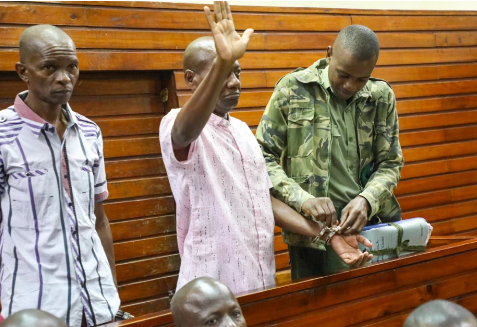If a new bill becomes law, individuals who force children to convert to a religion through misrepresentation, undue influence, or coercion could face a fine of up to Sh10 million, imprisonment for up to five years, or both.
The Religious Organisations Bill 2024, which seeks to protect individuals from being recruited into religious organizations unwillingly, also prohibits recruiting or converting a child from one religion to another without the consent of a parent or guardian. It criminalizes using religion to violate children’s rights, offering religious teachings to a child without parental consent, and practicing or preaching doctrines intended to harm others. Additionally, the bill outlaws indoctrinating individuals with religious doctrines, using religion for financial exploitation, promoting religious intolerance, or encouraging anarchy or lawlessness.
The bill, sponsored by Tana River Senator Danson Mungatana, was read for the first time yesterday. Mungatana stated, “A person who contravenes subsection (1) commits an offence and is liable, on conviction, to a fine not exceeding ten million shillings or to imprisonment for a term not exceeding five years or to both.”
Mungatana highlighted the lack of regulation around religious organizations in Kenya, which has allowed extremist and predatory groups to thrive. He criticized the current fragmented regulatory framework and the absence of a dedicated approval or enforcement agency to ensure that religious groups adhere to the law.
He said, “The current framework neither promotes transparency and accountability in the management of funds nor provides for self-regulation. While the freedom of religion and belief is guaranteed under the Constitution, the outward manifestation of that belief is subject to legitimate guidelines aimed at promoting a just and safe society that respects the right to life, human dignity, security of the person, freedom from servitude, privacy, and freedom of association and expression.”
Mungatana concluded, “There is therefore a need to enact a single, all-inclusive piece of legislation and establish a strong enforcement agency with sufficient resources to monitor the registration of religious organizations, their activities, and their returns.”
The bill, developed by a Senate ad hoc committee, was introduced following investigations into the deaths of 448 people in Shakahola, Kilifi County, linked to religious extremists. These deaths were associated with cult leader Paul Mackenzie, who faces multiple charges, including terrorism, murder, and manslaughter, in Mombasa and Malindi courts. Mackenzie, his wife, and other suspects are currently detained at Shimo la Tewa Prison in Mombasa, with many deaths attributed to self-inflicted starvation.
Under the proposed bill, a religious leader operating an unregistered group would face a Sh5 million fine, imprisonment for three years, or both. The bill also outlines conditions for registering religious institutions. Existing religious organizations will be given two years to comply with the new requirements once the bill becomes law.
The bill stipulates that religious leaders must hold a degree, diploma, or certificate in theology, though this provision will only take effect six years after the Act becomes law. To register, a religious entity must be supported by at least 25 people of the same faith, endorsed by an umbrella religious group, have a constitution detailing its doctrine, and include a management structure with a board of trustees, at least two-thirds of whom must be Kenyan citizens.
Additionally, the bill requires the group to provide a physical address for its principal place of operation and any branches, if applicable, and explain the purpose of its creation and any affiliations or partnerships in and outside Kenya.
The bill proposes establishing an office of the registrar of religious organizations, led by a registrar and a deputy. The registrar would have the authority to suspend or revoke registration certificates and maintain a register of all registered religious organizations and their umbrella groups. To enforce the bill, county executive committee members would collaborate with the registrar to regulate religious organizations in their counties, inspect these groups, and oversee elections of their management structures.


